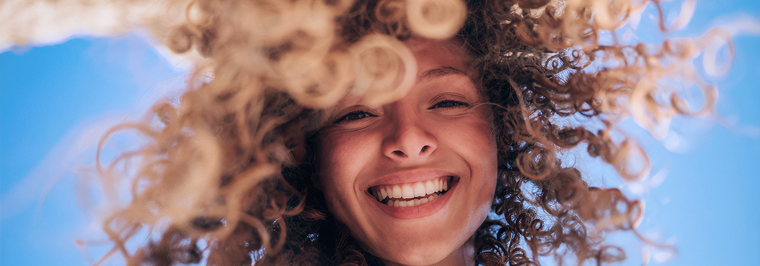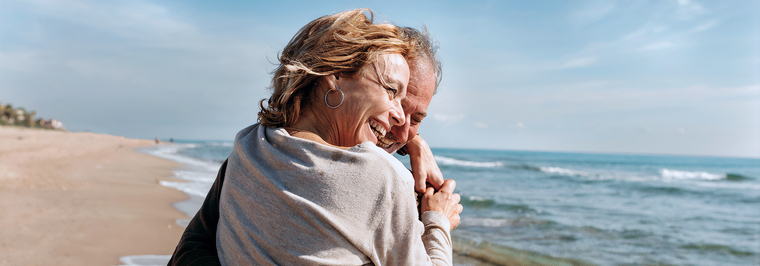Our Aesthete clinic specializes in pediatric dentistry, and this is our dedicated and responsible activity. Young patients require a sensitive approach, delicate handling and increased attention. Therefore, we provide them with special conditions at our pediatric dentistry located in Dubai, on The Bluewaters Island. All the necessary procedures and manipulations are done without fear and tears. Aesthete specialists who take care of children do their best so that the child is not afraid of treatment and attends every appointment with joy.
Why do milk teeth need to be treated?

Milk teeth are often called temporary because they are gradually replaced by permanent ones as the child grows up. Do temporary teeth need to be treated if they fall out anyway? This question is often asked by parents to pediatric dentists and the answer is unequivocal: we should pay the same attention to the health of milk teeth as to the state of the permanent elements of the dentition. There are several reasons for this:
Impact on speech production
Milk teeth are actively involved in speech production. They erupt in children at the age of 5-6 months, and this is just the time when the baby tries to pronounce their first words. Temporary teeth directly influence the quality of a child's diction, and if they evolve incorrectly or fall out ahead of time, then there are high risks of the development of various speech disorders.
Involvement in the mastication
Temporary teeth are required for quality mastication and assimilation of food, without which there may be problems with the functioning of the digestive tract. In addition, the mastication process influences the proper formation of the jaws. If the milk teeth do not erupt, grow incorrectly or are removed ahead of time, then during the jaw development, various anomalies often occur, and their correction requires complex and lengthy treatment.

Psychological comfort
If the teeth are absent, not only adults, but also children do not want to smile. Ashamed of their smile, the child will not communicate with peers and this will affect both the psychological state and the sociability, which is needed for complex self-development and interaction with the outside world.

Rapid progression of caries and its complications
The anatomy of milk teeth is such that caries quickly penetrates into internal tissues and, without treatment, leads to purulent processes and other serious complications. If caries of a milk tooth reaches such a stage, then removal cannot be avoided. In addition, carious teeth are a constant focus of infection in the child's body, which is still vulnerable and does not have a strong enough immune system.
Malocclusion
If a child's temporary teeth are not treated, but removed, then malocclusion will definitely develop. Defects will have to be treated by a pediatric orthodontist, and in the most severe cases, you'll need to contact an oral and maxillofacial surgeon.
Sick and damaged by caries milk teeth are a serious threat to the rudiments of permanent teeth.
As you can see, believing in the myth that children's temporary teeth do not need to be treated can have the most regrettable and dangerous consequences. Start taking care of your child's milk teeth since they appear and be sure to visit dedicated experts for consultations and preventive examinations. To make your first appointment at Aesthete pediatric dentistry, contact us by phone or leave a service request on the clinic's website.
Pediatric dentistry services at Aesthete clinic in Dubai
Our premium dentistry offers parents and young patients the widest range of services for taking good care of both milk and permanent teeth.

Treatment of caries
Milk teeth caries develops several times faster than for permanent teeth. Literally, in a matter of weeks, it can affect the dentin, reach the pulp and cause pulpitis and periodontitis.
The rapid spread of the carious process can be explained by the following features of temporary teeth:
- Milk teeth tissues have a more porous structure;
- Their walls and enamel are much thinner than for permanent teeth.
In addition, children's immune system has not been sufficiently formed yet, so the infection that has affected one tooth quickly passes to healthy "neighbors" in a row.
Pediatric dentists of the Aesthete clinic advise parents to regularly examine their child's teeth and immediately contact specialists, even if you see only a small yellow or whitish speck on the tooth surface. Under such a speck, a fairly deep carious cavity can be hidden. A pediatric dentist will conduct a professional examination and diagnosis, and prescribe treatment that will stop caries and prevent complications. In the initial stages, caries of milk teeth is treated without a dentist's drill, which little patients are so afraid of.
Caries in the speck stage is treated with special preparations containing minerals that restore the structure of dental tissues. These preparations are applied to the surface of milk teeth. This procedure will not cause any discomfort to the child.
But if the destruction of the temporary tooth is significant, then the treatment involves drilling and filling. For fillings, they use special composite materials that do not contain allergens and other substances harmful to the child's body.
If your child needs caries treatment, the pediatric dentists of the Aesthete clinic will treat him with sensitivity, care and in such a way that the visit to the doctor's office will leave only positive impressions for the little patient.
For the treatment of caries of children's milk and permanent teeth, pediatric dentists use a dental microscope, which gives a multiple increase in the examination area. The use of a dental microscope helps not only to detect hidden caries, but also improves the quality of treatment. The device is especially useful when working with tooth canals, the treatment of which always requires the utmost care and accuracy.
At Aesthete pediatric dentistry in Dubai, we treat without pain and tears not only caries, but also its complications, such as pulpitis and periodontitis.

Hygienic teeth cleaning
Plaque and tartar are formed not only on the adults' teeth but also on the children's teeth. Dental deposits are a breeding ground for bacteria that cause caries and inflammation in the oral cavity. By using regular tools at home, you can remove only part of the plaque, and tartar cannot be removed with a toothbrush at all. Therefore, children's teeth definitely need periodic hygienic cleaning at the dentist's office.
Professional hygiene by a pediatric dentist is an effective procedure for improving dental health and caries prevention for young patients.
It is performed using special formulations that exclude substances which can provoke allergic reactions and injure the thin tooth enamel of milk teeth.
After hygienic cleaning, the child's teeth are covered with a special remineralizing preparation, which makes the enamel stronger and restores its structure. After the procedure, the pediatric hygienist tells the child and his parents how to properly care for their teeth at home, as well as helps to choose tooth pastes, brushes and other tools that make home hygiene not only of high quality, but also safe.

Bite correction
Almost 50% of children have some kind of malocclusion. Dental anomalies provoke the following problems: the teeth in the rows grow unevenly, overlap each other, and are twisted. Malocclusion can cause serious problems with diction, as well as affects the quality of food mastication, which means that it can quite provoke diseases of the digestive system. Therefore, malocclusion requires correction, which is carried out under the supervision of a pediatric orthodontist and by using various removable and non-removable orthodontic appliances.
For children's bite correction, they use dental plates, trainers, aligners and braces. The type of orthodontic appliance is chosen by the pediatric orthodontist after a comprehensive diagnosis, which allows to determine the type of dentoalveolar anomaly and the reasons for its development. You can get an initial consultation on the children's bite correction by making an appointment with our Aesthete paid pediatric dentistry in Dubai, on The Bluewaters Island.

Aesthete pediatric dentistry in Dubai: treatment without fear and tears
Quite often, parents choose a clinic for their child treatment according to a simple principle: they go to a pediatric dentistry near their home. This approach usually has the most unfortunate consequences. The proximity of the clinic to home does not guarantee the quality of treatment and psychological comfort for the young patient. If the child's first visits to the dentist's office are stressful and accompanied with negative emotions, then, when becoming an adult, he will retain fear of doctors and begin to postpone dental treatment until the most critical stages. Therefore, take the choice of pediatric dentistry responsibly, and choose clinics that are focused on the treatment of children and create optimal conditions for this.
At our Aesthete pediatric dentistry in Dubai on The Bluewaters Island, we take a gentle approach to pediatric dental care.
Child's treatment begins with an adaptation session, during which the specialist tries to establish contact with the young patient and gain his trust.
The clinic's interior and the atmosphere in the children's rooms will not cause frightening associations, but on the contrary, they will help the child to relax. Bright toys, favorite cartoons, sensitive staff, doctors who contact the child in a playful way will make a visit to the Aesthete clinic a pleasant one. It will be remembered for exceptionally positive emotions and will form a positive experience of treatment at the dentist's office.
Answers to patients' FAQs
Why is it important to treat caries of milk teeth in time?
Children's teeth caries develops rapidly, and the infectious-inflammatory process quickly penetrates into the surrounding tissues and can affect the germ of a permanent tooth. Moreover, bad teeth in a child's mouth are an active focus of infection that can cause diseases affecting the entire body as a whole. Moreover, it has been proven that untreated caries is one of the causes of frequent diseases of the upper respiratory tract.
Do we need to treat milk teeth or remove them?
If there is even the slightest option to save a milk tooth and protect it from premature extraction, Aesthete pediatric dentists advise using it. If the tooth is removed ahead of time, the process of jaw formation is disrupted, bite defects develop, and problems with speech function arise.
Is there pulpitis of milk teeth?
Yes, pulpitis is quite capable of developing on milk teeth. It is the result of neglected caries, which has destroyed the tooth enamel and dentin and penetrated into the tooth nerve. Treatment of pulpitis of milk teeth should be urgent, as it can lead to even more severe complications: periodontitis and periostitis.
When can fluoridation and remineralization of a child's teeth be done?
Pediatric dentists recommend these procedures to be done from the age of 3-4 years. That is, from the moment when the child is able to understand and follow the instructions of the adult and not swallow the drugs applied to the dental surfaces.
At what age do children get braces installed?
Classic braces are used to correct the occlusion immediately after a complete change of milk teeth by permanent ones. This usually happens at the age of 13-14. The jaws are still being formed during this period, so the treatment is faster and easier than for adults.
How to prepare your child for an appointment with a pediatric dentist?
You should definitely talk confidentially with your child and build a conversation in a positive way. Try to explain to your child in an accessible way why it is important to treat his teeth and why he should not be afraid of dentists. Come up with a story, a game, an adventure and, of course, a motivating reward. Reassure not only the child, but also yourself. Children subtly feel the emotions of adults, and your anxiety is easily transmitted to the child.
When should a child see a pediatric dentist for the first time?
If any pathologies that interfere with sucking and breathing are detected, then the baby undergoes their first examinations at the dentist's office even in infancy. In the absence of expressed problems, the first visit to the dentist's office should be scheduled when the child's central incisors erupt. This usually occurs at the age of 1.5-2 years. After the first visit, the pediatric dentist will appoint the best time for the next scheduled examinations.
At what age is the bite corrected by a pediatric orthodontist?
If occlusion defects are detected at an early age, then correction should be started at the age of three, using devices and structures designed for milk occlusion.
Referense
- American Dental Association Commission on Dental Accreditation Accreditation Standards for Advanced Specialty Education Programs in Pediatric Dentistry Chicago, Ill. (2013)
- American Academy of Paediatric Dentistry Reference Manual V 38/N O 6 1 6/17 (2015)
- American Academy of Paediatric Dentistry Policy on the Role of Dental Prophylaxis in Pediatric Dentistry (2012)















